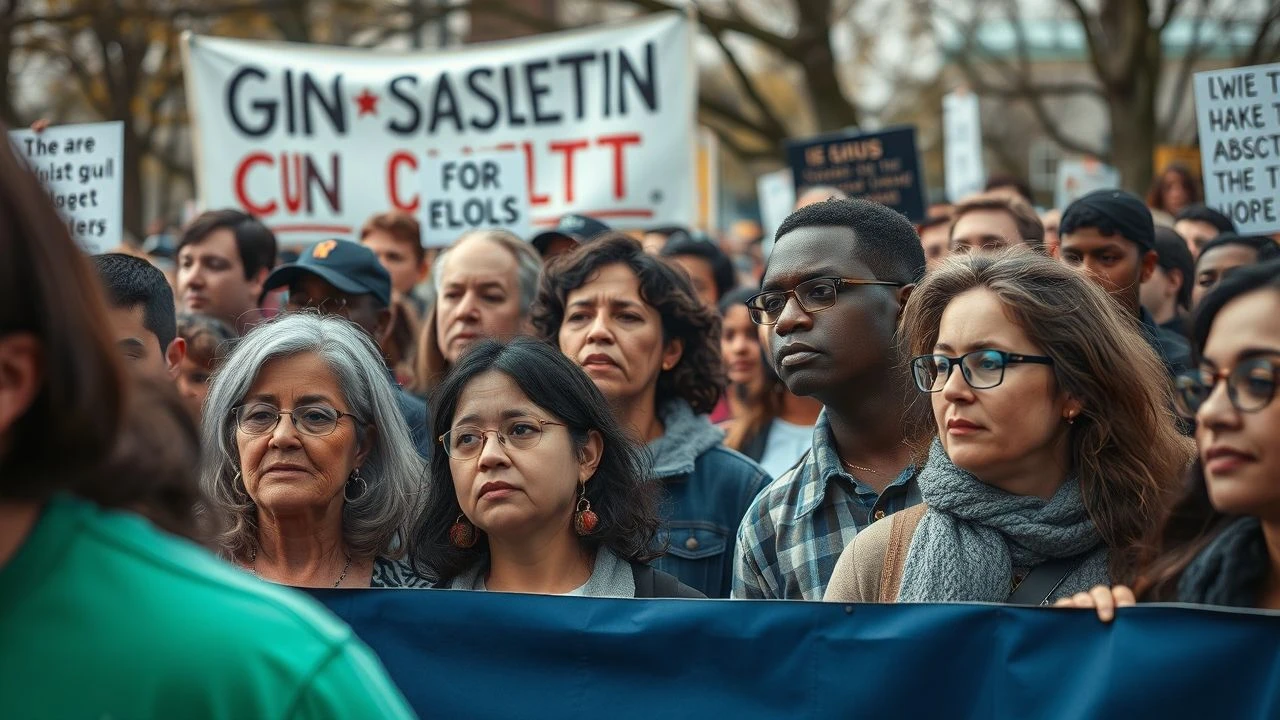
The push for greater gun control is undeniably gathering momentum. Several factors are fuelling this surge, most notably the dreadful spate of high-profile mass shootings we've witnessed. These tragedies act as stark reminders and galvanise public opinion like nothing else, prompting many to demand action from their elected officials.
Public sentiment is shifting, too. Recent polls show a significant increase in support for stricter gun laws. People are becoming less tolerant of the status quo, with a growing chorus calling for common-sense regulations. This change is reflected in the increasing influence of advocacy groups such as Everytown for Gun Safety and Moms Demand Action. These organisations have become powerful voices in the debate, employing diverse strategies, from grassroots activism to lobbying politicians, to make their case.
For instance, Everytown has been instrumental in funding research and disseminating data on gun violence, while Moms Demand Action focuses on mobilising local communities and putting pressure on businesses to adopt responsible gun safety policies. Their impact is measurable; they've played a key role in pushing for background checks and restrictions on assault weapons in several states. We're not going to stand by and watch our communities be torn apart by gun violence any longer,
says a community organiser from Manchester. We need action, and we need it now.
This sentiment is echoing across the country, driving the rising tide of gun control advocacy.
Well, key measures being advocated for include universal background checks – ensuring that everyone purchasing a firearm undergoes scrutiny – and outright bans on what are often termed 'assault weapons'. These bans aim to remove the most dangerous and readily available firearms from circulation, a move proponents believe will significantly reduce gun-related deaths and injuries.
To get a proper understanding of the effectiveness of these initiatives, organisations like the Giffords Law Center provide invaluable reports and analysis. They offer a comprehensive overview of state gun laws and their impact, allowing us to see what's working and where improvements might be needed. Think of it as a meticulous examination of the evidence, enabling policymakers to make informed decisions.
Of course, any discussion of gun control wouldn't be complete without acknowledging the staunch opposition from gun rights organisations. They raise concerns about the Second Amendment, individual liberties, and the potential for overreach by the government. Their arguments, often articulated through robust lobbying efforts, challenge the very foundations of proposed gun control laws. "The right of the people to keep and bear Arms, shall not be infringed,"
they often argue, highlighting their commitment to preserving existing gun ownership rights.
The legislative landscape is, therefore, a complex and ever-evolving battleground. It's a state-by-state negotiation between public safety concerns and deeply held beliefs about individual freedoms. Whether this surge in gun control advocacy will ultimately translate into significant legal shifts remains to be seen, but the conversation is certainly heating up.
The surge in gun control advocacy, fuelled by rising public concern, faces a rather steep uphill climb. Political polarisation, particularly across the pond and here at home, presents a formidable barrier. It's not just about differing opinions; it's about deeply entrenched ideologies and partisan loyalties that make finding common ground incredibly difficult. Then, of course, we've got the powerful influence of interest groups, who wield considerable clout in shaping the political landscape. These groups, often well-funded and highly organised, can effectively lobby against any measures that they perceive as infringing upon their interests.
So, how do we even begin to navigate this tangled web? Building consensus requires a multi-pronged approach. One key strategy involves focusing on areas where agreement is possible. For instance, red flag laws, which allow for the temporary removal of firearms from individuals deemed a danger to themselves or others, often garner broader support than outright bans. Strengthening background checks is another area where common ground may exist.
Evidence-based policymaking is also crucial. We need to look closely at academic research on the impact of various gun control policies. What works? What doesn't? Understanding the data is essential for crafting effective legislation. For example, studies on the effectiveness of universal background checks in reducing gun violence offer valuable insights. The long-term implications of different approaches must be carefully considered. Are we prioritising short-term solutions over long-term prevention? Are we addressing the root causes of gun violence, such as mental health issues and socioeconomic factors?
To get a more balanced view, I thought it was worth including an opinion from Doctor Anya Sharma, a policy analyst specialising in this area: “Building consensus requires not just compromise, but a fundamental shift in how we frame the issue. We need to move beyond the simplistic dichotomy of ‘guns vs. no guns’ and focus on strategies that promote responsible gun ownership and prevent violence.”
That is a point I think we all can agree with.

Communities Unite to Combat Opioid Crisis with Comprehensive Strategies
Expanding Voting Rights: Legislative Battles for Equitable Access in the US
Affordable Housing Crisis: Advocates Demand Policy Changes to Combat Homelessness and Inequality
Rising Awareness Fuels Advocacy for Mental Health Support
Education Underfunded: Calls Mount for Equitable Distribution and Increased Support for Public Schools
Revamping America's Roads: Ambitious Plans to Modernize U.S. Transportation Infrastructure Take Center Stage